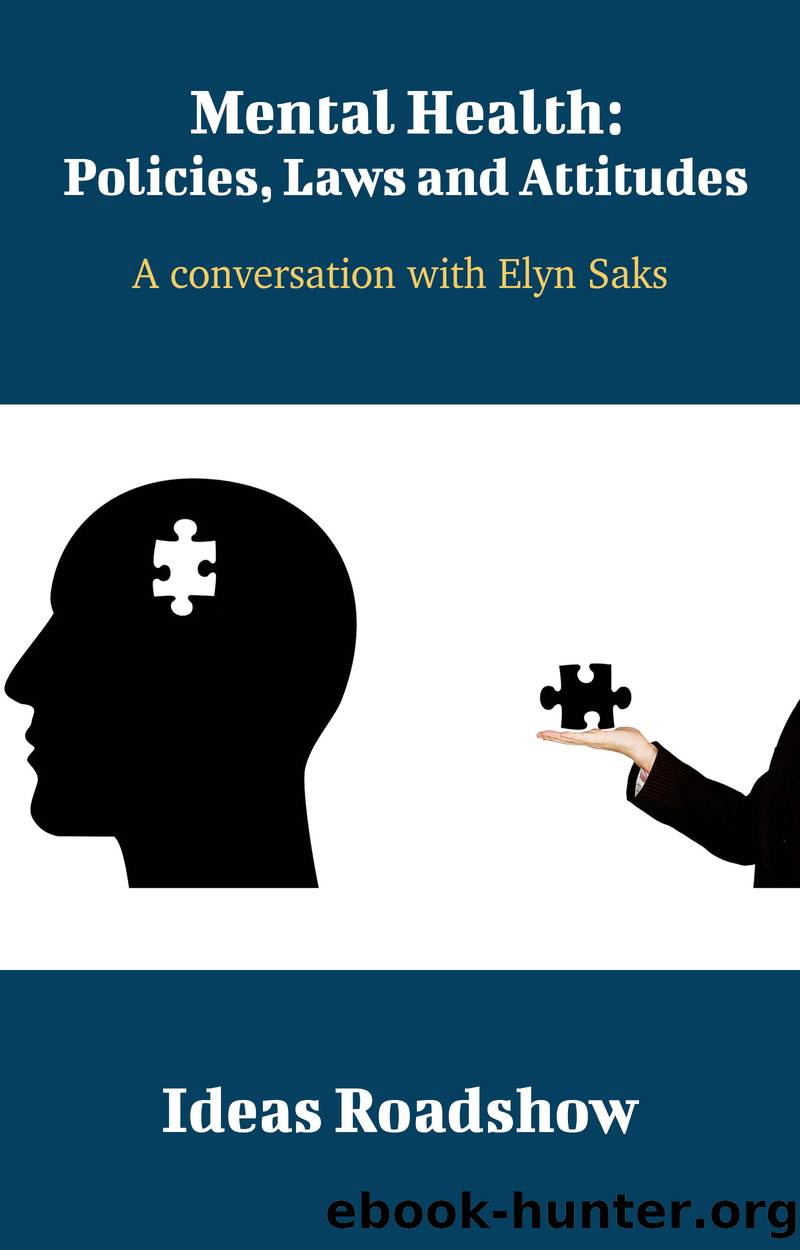Mental Health by Howard Burton

Author:Howard Burton
Language: eng
Format: epub
Tags: Psychiatry, law, psychology
Publisher: Open Agenda Publishing
Published: 2021-04-25T00:00:00+00:00
Questions for Discussion:
What does Elyn mean, exactly, when she says, âIt was Pinel who loosened the chainsâ? Who was Philippe Pinel and what did he do, exactly?
To what extent do you think that American legal and medical practices involving restraints for psychological patients are a product of broader societal attitudes towards mental illness and the mentally ill?
IV. Empathy
The missing link
HB: Let me get back to exploring some details that I think I may have glossed over a little bit, specifically with respect to restraints, because I think itâs important for people to get a clear sense of what the law is, what your efforts were, how things have changed in different places, and so forth.
To me, a key issue that Iâd certainly like to return to is this idea of autonomy, this idea of capacity, this idea of when someone is in a position to be able to make a judgment himself or herself, as opposed to having a judgment made for them. Can you maybe, very specifically, talk about restraints, the work that you did, what the law was previously, and compare and contrast that in different places?
ES: Four- and six-point restraintsâtying someone spread-eagled to a bedâhave been around for a long time. In England, they went away around the end of the 19th century with people like John Conolly, and moral treatmentâtreat people with dignity and respect and they will act in a dignified and respectful way. That seems to be the case.
HB: Is it actually against the law to do that now, or is it just policy that people treat people with dignity and respect in so far as they donât physically restrain them in the United Kingdom, but if they were to physically restrain them, would it be against the law?
ES: I donât think it would be against the law, no. I just think the practice is not to do it. Iâm not aware of any law in England about that. In America, places vary in their use of restraints. I remember, when I was in the hospital, reading my records after the fact and it said, âUse restraints liberally.â So they thought of it as a form of treatment. They thought that that would help me, but I didnât experience it that way at all. As I said before, there have been efforts to reduce the use of restraints that have been highly successful, like in Massachusetts and Pennsylvania, but in other places they are still used quite a bit.
The robust finding in the literature is that whether you get restrained has less to do with your characteristics as a patient, the staff-patient ratio, or anything like that; what it has to do with is the ethos that comes from the top. So, if management, if the head people say, âUse restraints liberally,â they will, whereas if they say, âDo everything you can to de-escalate situations so you donât have to use restraints,â then thatâs what will happen.
Restraints are potentially dangerous, as Iâve said. People die in them.
Download
This site does not store any files on its server. We only index and link to content provided by other sites. Please contact the content providers to delete copyright contents if any and email us, we'll remove relevant links or contents immediately.
Mary Lincoln's Insanity Case by Jason Emerson(179)
Bioethics and Biopolitics in Israel by Hagai Boas Yael Hashiloni-Dolev Nadav Davidovitch Dani Filc and Shai J. Lavi(154)
Exposed by WILLIAM BERNHARDT(136)
We Do! by Jennifer Baumgardner(133)
Hopes for Better Spouses by Roeber A. G.;(133)
The Equal Parent Presumption by Kruk Edward;(130)
Why Surgeons Struggle with Work-Hour Reforms by James E. Coverdill John D. Mellinger(129)
Not Your Mother's Divorce by Kay Moffett(129)
Causation in Law and Medicine by Mendelson Danuta;Freckelton Ian; & Danuta Mendelson(127)
Not Just Roommates by Elizabeth H. Pleck(125)
The History of Marriage Equality in Ireland: A Social Revolution Begins by Sonja Tiernan(125)
Framing Abuse by Jenny Kitzinger(120)
Polygamy in Primetime by Janet Bennion(117)
Principles and Practice of Trial Consultation by Stanley L. Brodsky(117)
Divorce in Nevada by Willick Marshal S;(116)
Divorce in New York by Stutman Michael;(101)
Child Welfare in the Legal Setting by O'Brien Thomas M.;(100)
Divorce in Nebraska by Koenig Susan Ann;Koenig Susan Ann;(98)
Divorce in Tennessee by Burch Eric J.;(94)
